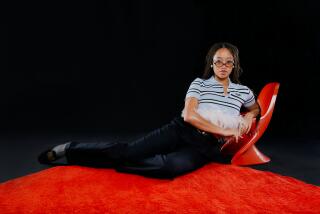John Paul DeJoria turns heads in the hair-care business
- Share via
The gig(s): John Paul DeJoria, 67, is co-founder and chief executive of Beverly Hills-based John Paul Mitchell Systems, a 32-year-old hair-care products line that is sold in 87 countries and logs nearly $1 billion in annual sales. The brand includes 110 Paul Mitchell schools in the U.S. DeJoria is also co-founder of the Patron Spirits Co. line of tequilas and holds interests in several other ventures.
Unglamorous beginnings: “I grew up in East L.A. I didn’t think it was a bad place. I didn’t know any better. At 10, we were in Atwater, which was a little better. We didn’t know it was a lousy area.”
Be ambitious: “I was a circulation manager for Lifetime, Fortune and Sports Illustrated, getting people to re-subscribe. I asked my boss, ‘What does it take to get ahead? I’d like to be a vice president.’ He said, ‘You’ve had no college and you’re only 26. Come back and ask me when you’re 35.’ I thought, I don’t want to do this for nine years.”
Listen to your job counselor: “Mine, a friend named John Capra, suggested the beauty industry. ‘It doesn’t start with a lot of money — $600 a month salary and a $125 car allowance — but I believe there is no end to where you could go with this.’”
Getting fired: Redken fired him in 1975. “I wasn’t their type of manager.” Ferymodel fired him in 1977. The Institute of Trichology fired him in 1978. “They said, ‘You made more money the first year than the owner of the company.’ Yeah, but he should be grateful I did, you know?”
Find the right partner: For DeJoria, the right business partner was hair-care guru Paul Mitchell, with whom he joined forces in 1980. “I said, ‘Why don’t we start a company together. We’ll each own 30% of it and raise half a million dollars and give them 40% of the company.’ He thought it was a brilliant idea. Paul never did business. I never did hair, so we were perfect partners.”
Down but not out: He and Mitchell were denied a loan for $500,000, so they dug into their pockets. “When the money didn’t come through, I said, ‘Paul, we’re going to need some money if we’re going to start this company. What can you afford?’ He said, ‘JP, I’m on my last dollars. $350.’ I threw in $350. I lived in my car for the first couple of weeks. It was a nice car, but it was 20 years old.”
If you’re living in your car, pick a friendly street, DeJoria learned. Film and television actress “Joanna Pettet came by and knocked on my car window on Mulholland Drive, where I parked. She said, ‘I heard you were sleeping in your car. I have an extra room in my house you could have for a couple of months free of charge.’ That was really nice.”
Keep trying: “I didn’t care how many interviews I would have to go on, how many doors I was going to have to knock on. I’d just go for it. Do it. Don’t give up,” he said. “You have to knock on door No. 100 as enthusiastically as you knocked on door No. 1.”
Like your work: “It’s a glamorous industry. You’re around beauty. It was a fun industry. Hairdressers are just really fun people. I thought, ‘This is pretty cool being around this.’”
Philanthropy: DeJoria, now worth $4 billion, according to Forbes, gives back. Working with Berea College in Kentucky, his Grow Appalachia program teaches poor people how to grow their own food. He donates to Mineseekers, Food4Africa and Blazer House. He’s also a longtime supporter of Chrysalis, a Los Angeles nonprofit that counsels the homeless on how to find jobs. Last week, it provided free makeovers for homeless women. “When things are bad, you forget the good things in life, like how you felt when you were groomed properly. It gives them their confidence back.”
More to Read
Inside the business of entertainment
The Wide Shot brings you news, analysis and insights on everything from streaming wars to production — and what it all means for the future.
You may occasionally receive promotional content from the Los Angeles Times.











